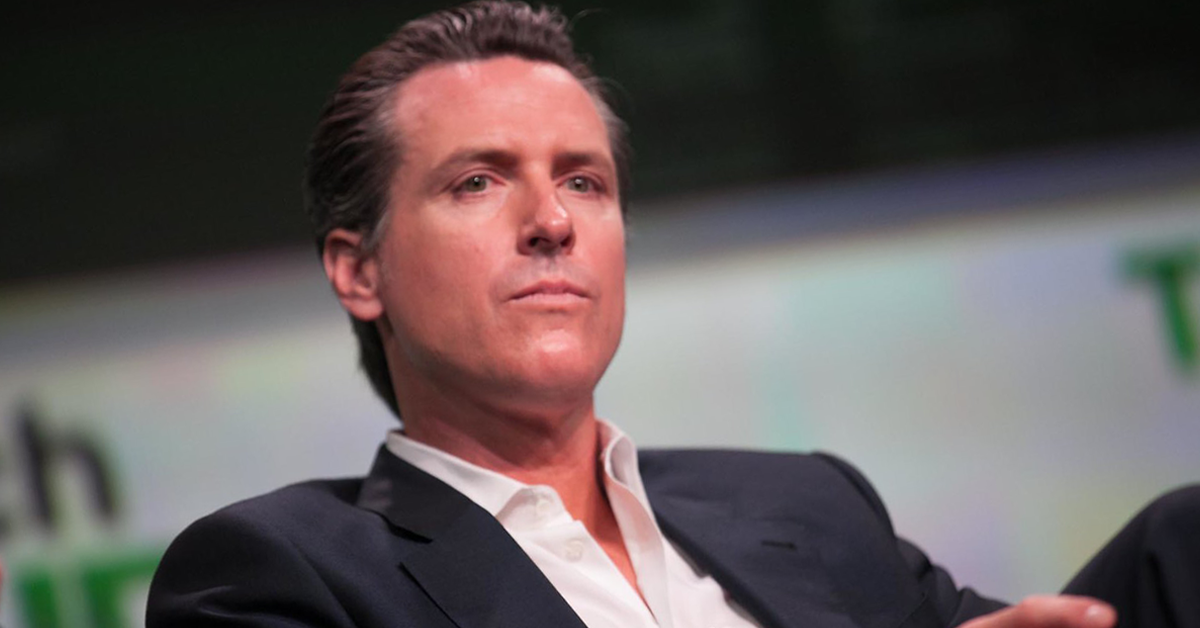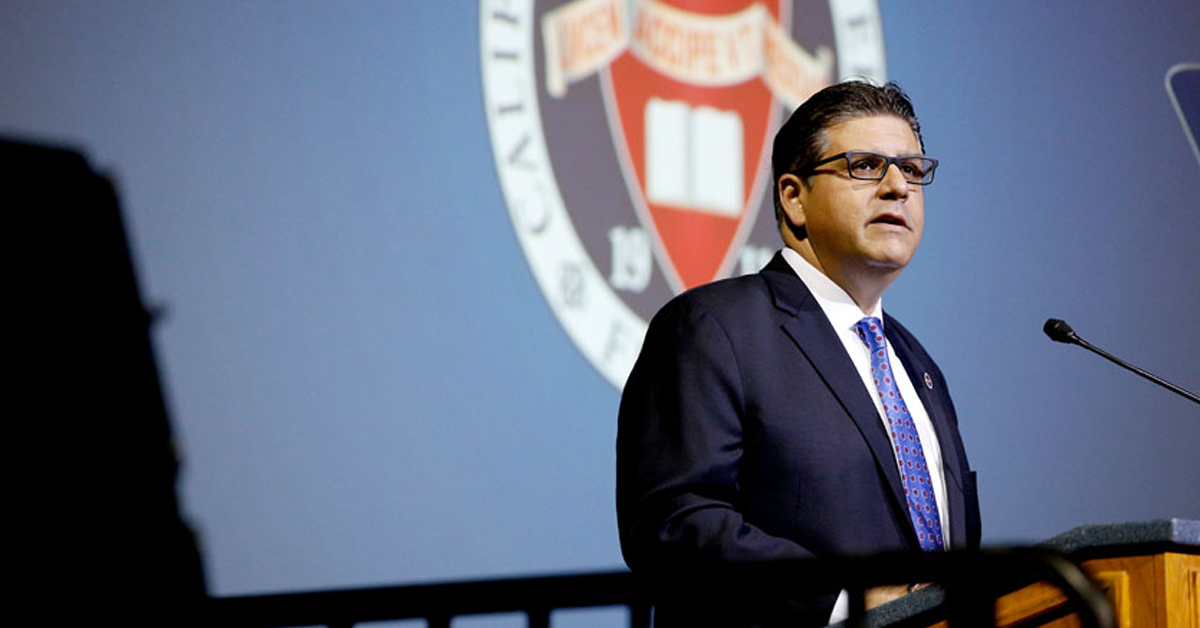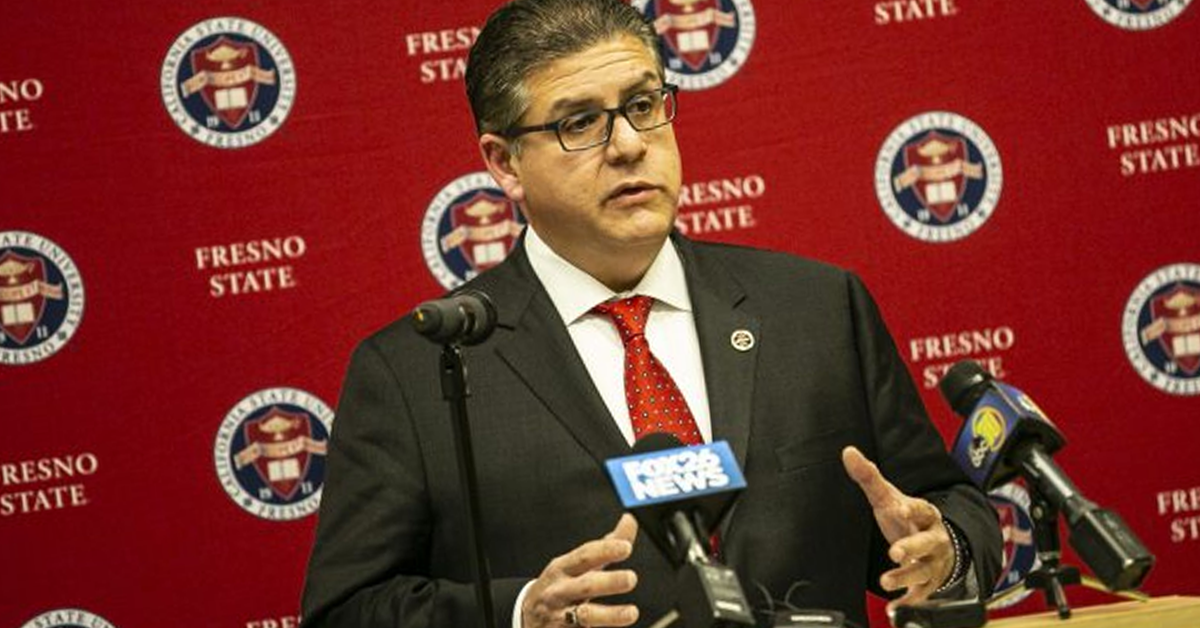California’s largest public university system will pay Joseph Castro, it’s recently-departed, 13-month Chancellor of the 23-campus system, more than $400,000 as part of a settlement agreement following his resignation.
The university system released the agreement on Friday.
Castro’s abrupt exit as the senior-most official in the California State University system came after a bombshell report by Gannett revealed mishandling years worth of Title IX sexual harassment complaints levied against Frank Lamas, a senior member of his President’s cabinet while leading Fresno State.
Castro was the President of Fresno State for seven years before accepting the position of Chancellor in January 2021.
As part of the departure agreement, Castro will be assigned to the university system’s “executive transition program” and is designated as an “advisor to the board” for a one-year stint.
The gig pays a $401,000 salary and includes “retreat rights,” enabling Castro the opportunity to join the faculty at Cal Poly San Luis Obispo as a tenured professor.
While the one-year payout is pricey, Castro’s salary as Chancellor was pegged at $625,000 annually. He also received a car allowance of $1,000 and a $95,004 annual housing allowance.
As CSU’s chancellor, Castro received a salary of $625,000. He also received a monthly auto allowance of $1,000 and a $7,917 monthly housing allowance. Under the terms of his settlement agreement, he will no longer receive the auto allowance but will continue to receive the housing allowance through this August.
Castro cannot exercise the rights until February 2023, when his one-year advisory gig ends, university officials told reporters.
The California Faculty Association, the chief union bargaining for roughly 30,000 professors, adjunct lecturers, librarians, and other staff, excoriated CSU trustees for approving a settlement they called “outrageous and irresponsible.”
“It sends a message that the CSU Board of Trustees endorses rewarding bad behavior when it comes to our administrators,” the union said. “Trustees are more interested in business as usual and damage control than they are in addressing severe and systemic harassment and abuse across the CSU.”










